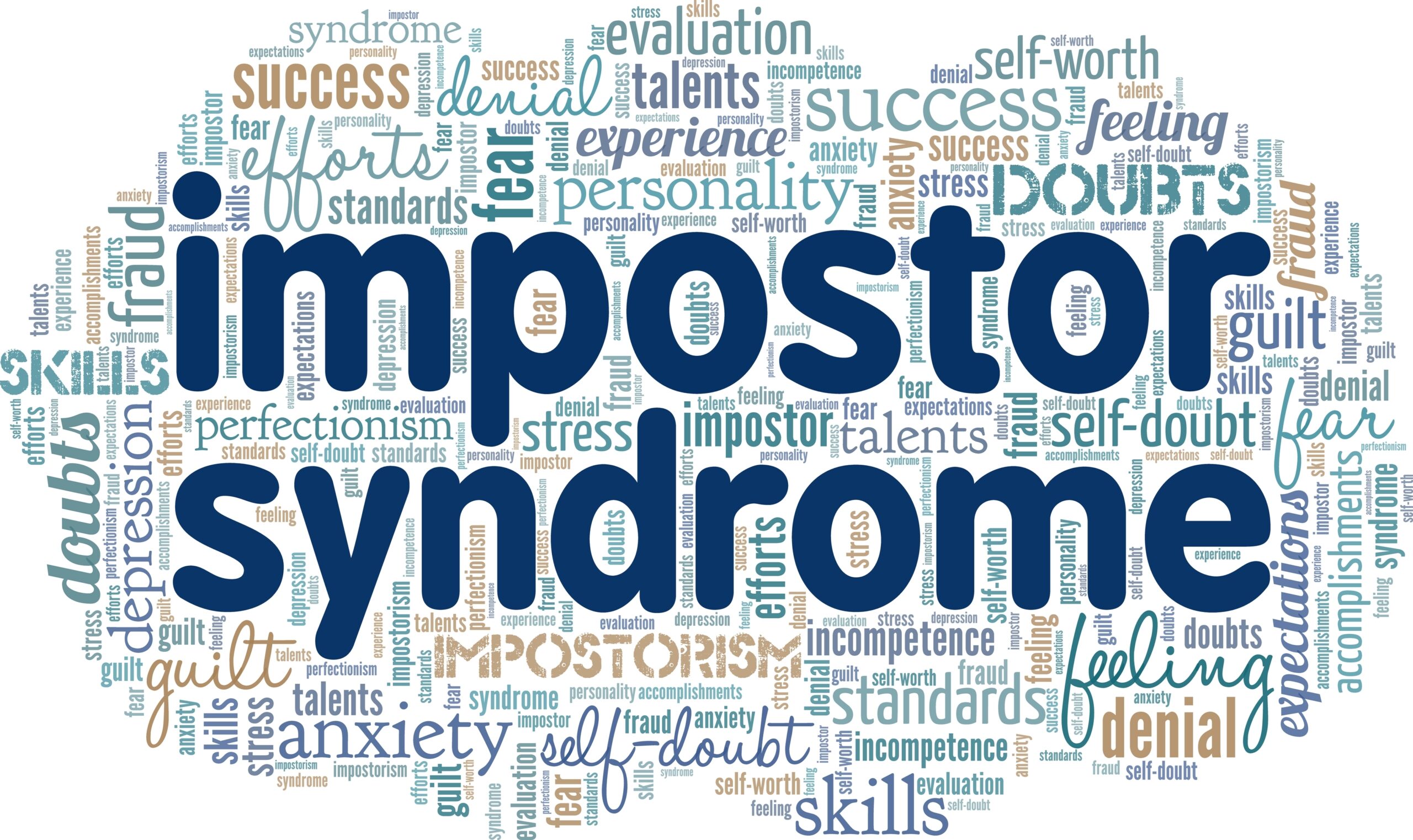


“I am not good enough.” Ever hear yourself saying that?
Chances are you, and someone you know, are hearing similar voices in your head proclaiming a lack of self-worth. Research shows that 70% of professionals hear this voice at some point during their educational or career years. It is Imposter Syndrome, and it can be holding you back from the success you want to achieve.
For some, Imposter Syndrome can be constant, but for most, it’s associated with feelings that come and go. Common triggers are job transitions, taking on new responsibilities, engaging with a new team, public speaking, and/or an unsupportive work environment. Increasingly frequent cycles of Imposter Syndrome can erode a person’s self-confidence and prevent them from taking any risks or trying new things. Even worse, it may result in emotional behaviors that can be perceived as aggressive or hostile. The Imposter Monster can take on many forms, from beating someone down into a cycle of self-sabotage to patterns of rage behavior.
On my podcast, Leaders Creating Rukus, I recently interviewed nursing leader and hypnotherapist Tasha Triana. During the episode, Tasha explained the most important relationship to prioritize above all in order to tackle Imposter Syndrome.
When you board a plane, one of the first set of instructions flight attendants give you is that in the event of decreased cabin pressure, you should put your oxygen mask on first before assisting others around you. This is because once you are safe, secure, and calm, you are better able to support and serve others around you.
The oxygen mask metaphor holds true for how you can prioritize any relationship in your life. When your defenses are down and you are not tapping into what you need, the negative imposter voice can take over. It restricts you from showing up as your best self. It doesn’t allow for healthy boundary setting. The stronger the connection you have to yourself, the more resilient you will become, able to disregard the untrue narrative in your head. As my colleague Chris King once told me, you will be able to know “your truth from the truth.” “Your truth” is the negativity you are hearing inside that is not in line with the energy you want. “The truth” is letting go of the inner voice that stops you from believing in your own power and gaining clarity about what you truly want and how to get to it.
Finding “the truth” can be a long process. It’s a journey a coach helps guide you on to build the resilience needed to tackle Imposter Syndrome.
To get this journey started, there are also some small steps you can take on your own. As we talked, Tasha revealed her top three tips on how to strengthen your relationship with yourself:
Five minutes alone is the start and foundation of the commitment you are making to your relationship to yourself. Identify a mindful activity where you feel fully present and aware of your thoughts and feelings. This could be in the form of meditation, a walk outside, a bath soak, or your morning coffee. Identifying just five minutes can provide the momentum you need for a mindset focused on prioritizing you first.
Plants are known to bloom when spoken to with care. The same goes for how we refer to ourselves. Do you describe yourself with negative words? If you have read this far in the article, I’m going to assume you do. Now think about that same dialogue–would you say it to a friend? Probably not. Words matter even the ones we say to ourselves. Be aware of how you are describing yourself and change the narrative. Focus on your strengths instead of your weaknesses. Highlight and think through your accomplishments while learning from failures, but not fixating on them.
Try this exercise. Take out a piece of paper and pen (yes, there is power in writing that no electronic media can replace) and jot down re-energizing activities. Think about those activities that bring you joy, lift you up, and excite you. They can be ones you currently engage in or activities that you haven’t engaged in for a long time. Don’t overthink it–brainstorm anything that comes to mind, adding in activities you’ve heard of and want to try. Now after the brainstorming part is over and you can think of no more to add, circle your top ten favorites. You have now just created your self-care tool kit. This is your go-to list of ideas when you feel your energy is depleted and needs a boost. But don’t just let this list languish. It’s also important to be mindful of scheduling time weekly to engage in one of these activities.
Prioritizing your relationship with yourself provides stronger resilience building, especially resilience to the negative commentary of the Imposter Monster in your head. That focus on nurturing yourself then positively impacts the many other relationships you have and how you conduct yourself in personal and professional situations.
As Martha Beck stated, “How we do one thing is how we do everything.”
For more information on how to work through the challenges of Imposter Syndrome and how coaching can help, please reach out to me, Aashi Arora, aashi@iriseexecutivecoaching.com or right HERE
 Preparing to Step Into CEO Roles
May 30, 2023
Preparing to Step Into CEO Roles
May 30, 2023
 How Do You Know It’s Imposter Syndrome?
Mar 08, 2023
How Do You Know It’s Imposter Syndrome?
Mar 08, 2023
 Imposter Syndrome During a Job Transition
Jan 20, 2023
Imposter Syndrome During a Job Transition
Jan 20, 2023
 4 Strategies for A Successful Interview
Oct 19, 2022
4 Strategies for A Successful Interview
Oct 19, 2022
 Fighting Physician Burnout with Coaching
Sep 16, 2022
Fighting Physician Burnout with Coaching
Sep 16, 2022
Please subscribe to receive a pdf of 15 Ways to Tackle Imposter Syndrome
